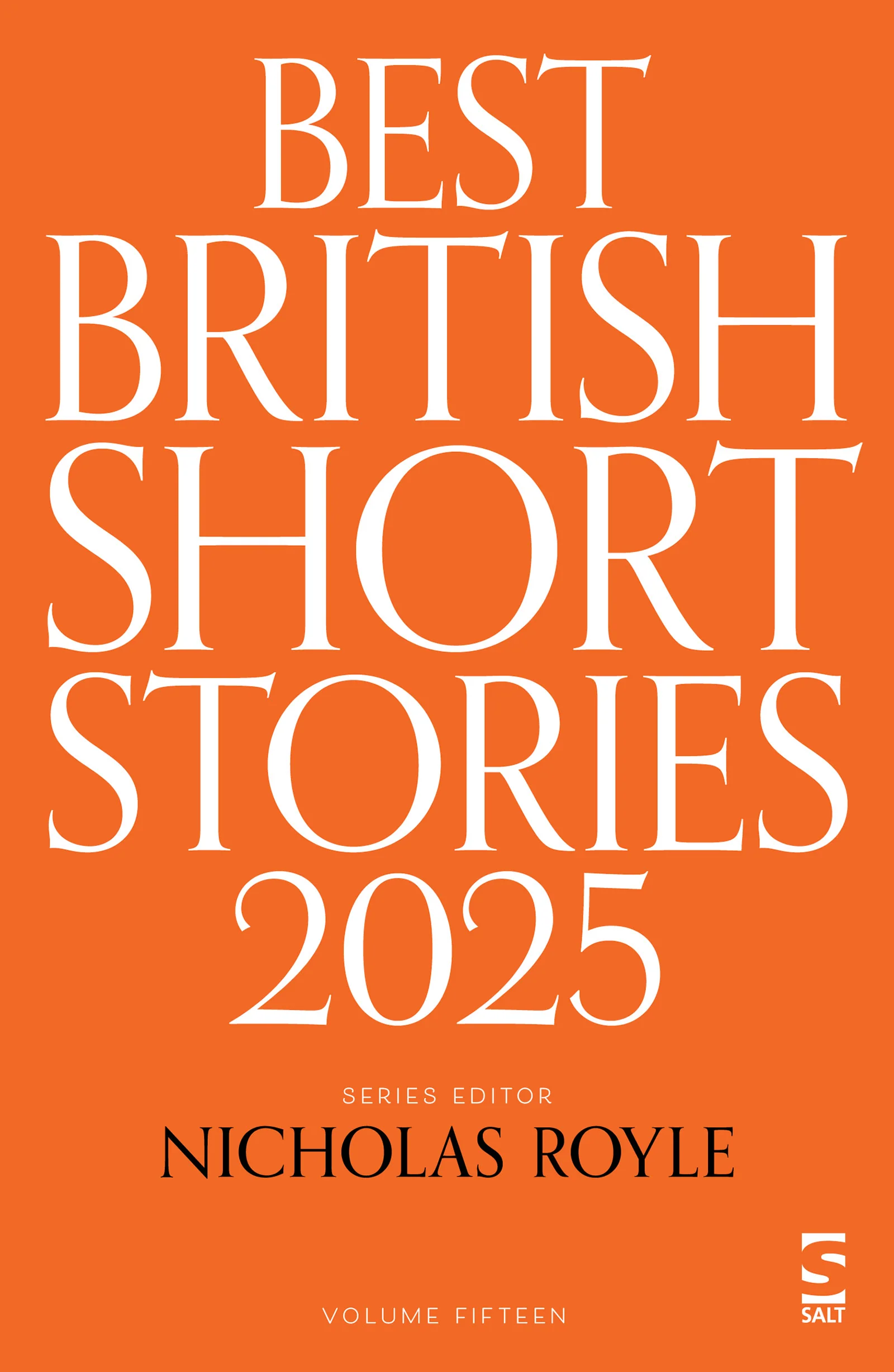A timely reminder of the ability of the contemporary short form to move, shock and surprise its reader in a myriad of ways.

Best British Short Stories 2025 | edited by Nicholas Royle | Salt Publishing LTD: £10.99
Reviewed by Paul Anthony Knowles and Sam Cassells
Twenty-three years on from the launch of the ‘Save Our Short Story’ campaign, the short story is once again in a fragile state in Great Britain. The form often maligned, under appreciated and seen as a secondary form in comparison to the novel, drama, or poetry, is once again in dire straits after its early 2000s revival. Royle’s introduction to the Best British Short Stories 2025 untangles the current plight facing the form. The opening of Royle’s introduction, ‘Fifteen UK Publishers that aren’t afraid of short stories’, uncovers that short story is seen as a form that is not to be trusted by mainstream publishers. Royle also investigates how a plethora of literary magazines, which once advocated for the short story, no longer exist and further reflects on the trend in current literary reviews and criticism to dismiss the short form. Royle succinctly makes the point that the short form, in the opinion of too many literary critics, is a form that is unable to compete with the novel.
Therefore, it is vital to recognise the crucial work that Royle and the team at Salt are doing in promoting the complexity and narrative power of the short story form in this year’s collected anthology. The anthology is full of innovative and emotionally examples that showcase the short story’s timeless ability to capture the present moment and reflect the human experience. The anthology starts with C.D. Rose’s story, ‘I’m in Love With a German Film Star’, a melancholic reflection on unrequited love for the titular ‘German Film Star’ told through records that the narrator has collected. Rose’s prose is full of the unflinching heartache rendered by loving someone who cannot reciprocate that love. In ‘Incidents’, Wyl Menmuir brings a fresh and bold approach towards British changeling folklore and mythology, as a child unexpectedly and uncontrollably manipulates the natural world around them leading to unnerving consequences.
A personal highlight in the anthology for me and Sam was Catrin Kean’s ‘Dŵr’, a poignant, emotionally sensitive story on the impacts of grief. A middle-aged man returns to a small Welsh village to sort out his father’s belongings after he has died. Due to his parents’ early divorce, the protagonist feels a sense of disconnection and alienation from his father until he discovers the river running under his father’s home. Touchingly, he comes to realise how his father would sit in his basement drinking whiskey, hoping to one day reconnect with his son. The story is simply a stunning reflection on grief, loneliness and the human inability to understand other people’s motivations.
Another personal highlight of ours was Elizabeth Stott’s ‘A Fictional Detective’, which plays on genre tropes to present readers with the sadness of a fictional detective who just wants a moment’s respite from unexpected screams in the night, mysterious shadows and a slew of dead bodies interrupting his peace. Stott’s story surprised us in the way it created a genuine sense of pity for the detective, making readers question more deeply the emotional and physical cost of being a world-renowned detective in crime fiction.
Another unusually surprising story was Ian Critchley’s, ‘Ghost Walks’, telling the story of a woman having a moment of Déjà vu as she revisits York, where she once spent her student days and met her future husband. What, at surface level, can be read as a deceptively simple ghost story turns into a complex exploration of identity, marriage and retrospection on the lives we thought we would live in the halcyon days of youth.
The standout story of the anthology for me and Sam was Alison Moore’s splendid, uncanny story ‘The Junction’, which focuses on a young man returning home to England from Paris after his long-term relationship has fallen apart. On his way home, he is involved in a traffic incident and takes refuge in the home of the man who caused the accident. His host is entering his twilight years, and as he waits for his car to be repaired, an unexpected friendship unfolds between them. Their tender friendship based upon lost love, loneliness and the inability to cope with the harshness of the modern world.
Royle and Salt maintain their status as a beacon of hope for contemporary short fiction, once again producing an anthology that is not only thought-provoking and emotionally dense but is thrillingly experimental and full of the best fiction in the British contemporary short story.
Reviewed by Paul Anthony Knowles and Sam Cassells
